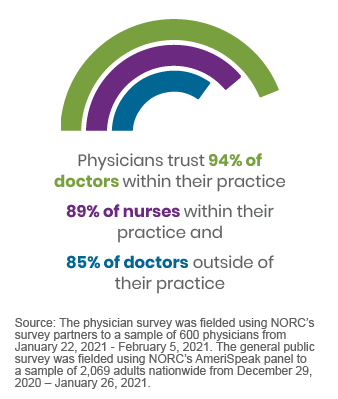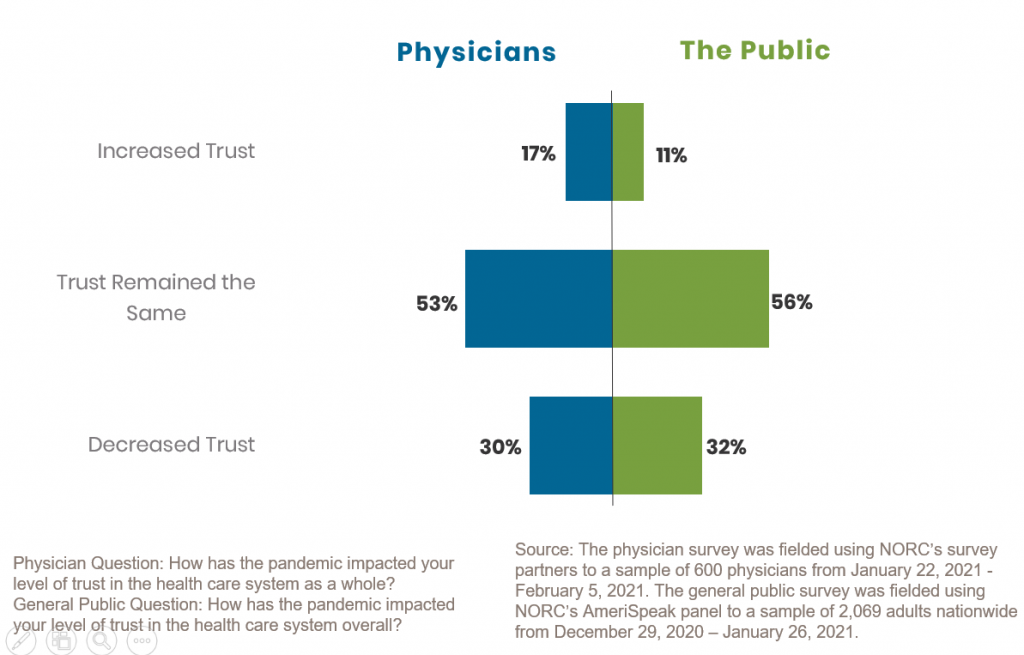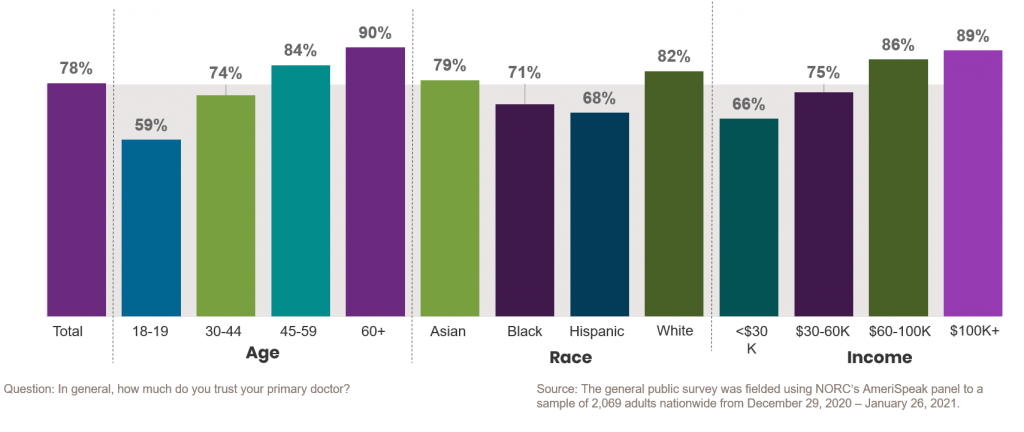In 2021, the ABIM Foundation engaged NORC at the University of Chicago to learn more about public and physician perceptions of trust in the U.S. health system.
The research shows a significant decline in physicians’ trust in health care leaders during the COVID-19 pandemic, notable differences between how physicians and the public perceive trust, and that experiences of discrimination negatively affect trust in U.S. health care. Highlights from the study include:
COVID-19
- During the pandemic, physicians report high levels of trust for other physicians and nurses (Fig. 1)
- In a year of unprecedented pressure on health care, nearly 30% of physicians say their trust in the U.S. health care system and health care organization leadership decreased
- 43% of physicians say their trust in government health care agencies decreased during the pandemic
GENERAL TRUST
- Consumers place more trust in doctors and nurses than in the health care system as a whole, with 32% saying their trust in the health care system decreased during the pandemic (Fig. 2)
- 90% of physicians believe patients can easily schedule appointments, but 24% of patients disagree
- 98% of physicians say that spending an appropriate amount of time with patients is important, but only 77% of patients think their doctor spends an appropriate amount of time with them
- 78% of people trust their primary doctor (Fig. 3)
PERCEPTIONS OF DISCRIMINATION
- 51% of physicians do not think the health care system discriminates against people
- Black patients are twice as likely to report discrimination by a doctor (Fig. 4)
- 51% of physicians say they have been discriminated against by their patients
- 41% of female patients report discrimination based on gender, compared to 12% of male patients
- 77% of Hispanic adults and 76% of Black adults say their physician trusts what they say, compared to 88% of Asian adults and 86% of white adults
This research was conducted between Dec. 29, 2020 and Feb. 5, 2021. The physician survey is a non-probability sample of 600 physicians. The consumer survey is a probability-based sample of 2,069 respondents with oversamples for Black, Hispanic and Asian respondents and has a margin of error of +/- 3.15 percentage points.






